When looking into achieving a community college education there are many things to consider. Community colleges are generally conveniently placed, making it easy to find something that is in your community and, therefore, able to meet your convenience needs. Some people go the route of community college education online. The beauty of engaging in community college classes is they offer the ability to get a number of needs met. Some people take one class a year, slowly working towards their goals, while others are on a fast track to transfer to a four-year accredited college or university. Some people take classes at their local community college for personal enrichment, or to up the skills needed for their current career.
How We Ranked the Best Community Colleges
The College Consensus Best Community Colleges ranking features only accredited community colleges and technical colleges. For the Consensus ranking, we combined community college rankings from Wallet Hub, Niche, and Grad Reports.
This combination of data gives prospective students a sense of how real graduates view the value of their community college experience. Our ranking of the Best Community Colleges describes the programs and unique qualities of some of the country’s best schools.
Recommended Online Associate’s Degrees
Visit sites to learn more about enrollment, tuition, and aid
1. The College of San Mateo

The College of San Mateo serves students along the northern Silicon Valley corridor. Its 150+ acre campus offers incredible views of San Francisco Bay and serves more than 12,000 students who attend classes online and on campus. The school offers a variety of personal development, career prep, professional development, and a gateway to higher education.
The College of San Mateo has received accreditation from the ACCJC and has program accreditation for cosmetology, dental assisting, nursing, and fire academy, among others. CSM has received a number of accolades and awards regarding the quality of education offered by this outstanding community college.
Score: 93.21
2. Kauai Community College
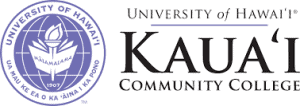
Kauai Community College is one of the seven-member community colleges within the University of Hawaii education system. KCC, which serves those who live on Kauai and Nihau, operates as a public space-grant school that was founded nearly a century ago as a vocational school within the state’s education department.
Kauai Community College also offers a variety of certificate and trade diplomas across industries that include culinary arts, electrical installation, automotive and creative media, among others. Kauai Community College’s campus is home to several notable campus art displays, including various copper, bronze, granite, ceramic, steel, and enamel sculptures.
Score: 89.31
3. Santa Rosa Junior College

Santa Rosa Junior College is a multiple-campus public community college that serves the greater Santa Rosa area in Northern California. SRJC was founded in 1918, making it the Golden State’s oldest community college. Santa Rosa Junior College is considered a school that prepares students to enter the UC system.
SRJC is recognized among the best community colleges in California and beyond. The school’s debate team ranked first in the nation among two-year community college-level schools, and the same year, the SRJC athletes won the state baseball championship.
Score: 89.29
4. The City College of San Francisco
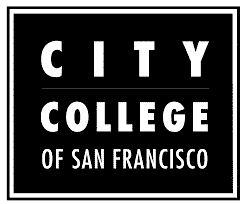
The City College of San Francisco (CCSF) was established in the mid-1930s as an industrial school. CCSF now operates as a public community college that serves nearly 24,000 students and is often home to more than 10% of San Francisco residents attending annually.
The City College of San Francisco offers more than four dozen academic programs that cover more than 100 occupational disciplines from its eight schools – behavioral/social sciences, business, English, fine/applied arts, health/social services, International Ed/ESL, and science/mathematics.
Score: 86.93
5. Butte College

Butte College is a community college that was established in the 1960s to serve the greater Butte County in California. The campus for Butte College is alongside a wildlife refuge and serves nearly 13,000 students annually.
Butte College, which operates within the state’s community college district. Butte College has been recognized for its sustainability efforts and won a National Wildlife Federation award in 2008. Notable alumni include several professional athletes – including Aaron Rogers.
Score: 85.35
6. Fox Valley Technical College
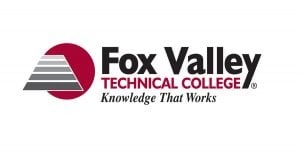
Fox Valley Technical College (FV Tech) was initially established in 1912. It operates as a public technical school and a member school of the state’s technical college system – the largest education system of its kind in the state of Wisconsin. The school’s online platform and urban campus serve approximately 50,000 students each year – the state’s largest technical school.
FVTC offers its students more than 200 associate degree, certificate, and diploma programs that include training in 18 apprenticeship trades and customized training programs. The Higher Learning Commission has accredited Fox Valley Technical College since the early 1970s.
Score: 84.95
7. Alexandria Technical & Community College
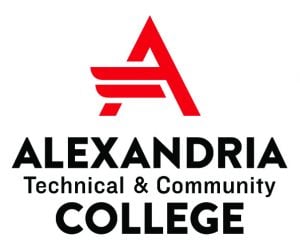
Alexandria Technical & Community College (ATCC) was founded in the early 1960s to serve the greater Alexandria vicinity. Alexandria Technical & Community College is a member school of Minnesota’s system of State Colleges and Universities. The school serves about 3,400 students each year, of which about 45% are full-time students.
Alexandria Technical & Community College offers a variety of academic degrees and trade/diploma and certificate programs. Alexandria Technical & Community College is accredited by the Higher Learning Commission, offering programs and degrees in business, design, information technology, law enforcement, behavioral health, liberal arts, health/education, transportation, construction/manufacturing, and the sciences.
Score: 84.01
8. Kapiolani Community College
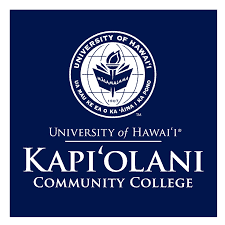
Kapiolani Community College (Kapiolani CC) is one of the public community colleges that is a member school of the University of Hawaii’s education system. KCC was founded in the mid-1940s as a technical college. KCC now operates as a space-grant school that has ACCJC accreditation. The school’s campus– named in honor of Queen Kapiolani- serves nearly 7,000 students and sits near the slopes of Diamond Head.
Kapiolani Community College offers certificates, diplomas, continuing education, and degree programs across a variety of disciplines – general arts, humanities, social sciences, business, natural sciences, healthcare, culinary, and computer science, among others.
Score: 83.40
9. Honolulu Community College

Honolulu Community College (HCC) operates as a public community college and one of the ten-member community colleges within the UH academic system. HCC, which was founded in 1920 as a trade school, is recognized to be the oldest community college in Hawaii.
At HCC, more than 6,400 credit and apprentice students attend classes each year. The school offers them a quality education – with more than 75 certificate, credential, and degree programs, that is also cost-effective and local. The faculty is well-credentialed, and the class sizes at HCC are small. HCC’s main campus is located near the heart of downtown.
Score: 82.89
10. Moraine Park Technical College
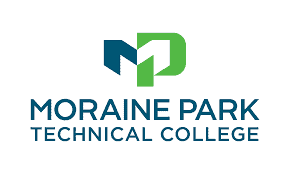
Moraine Park Technical College (MP Tech) was founded in 1912. The school is a member of the state’s Technical College System, with several campuses that serve nearly 15,000 students each year. In addition, Moraine Park Technical College is approved by the state for veteran training.
In addition to being HLC accredited, Moraine Park Technical College offers more than 100 programs, many accredited, in the areas of automotive technician, culinary arts, EMT, health information, medical lab tech, radiography, education, and various medical and technical specialties.
Score: 82.10
11. Anne Arundel Community College
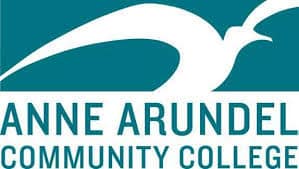
Established in the early 1960s as a junior college, Anne Arundel Community College now operates as an MSCHE-accredited public community college. The school’s 200+acre campus is the largest single community college campus in the state. The campus and the school’s online platform serve more than 35,150 students.
AACC is regionally accredited by the MSCHE, with more specific accreditations for nursing, and physical therapy, among others. The school’s efforts in the area of sustainability have been recognized by the Association for Advancement of Sustainability in Higher Education. Anne Arundel Community College offers students more than 100 organizations/clubs.
Score: 82.03
12. The North Dakota State College of Science (NDSCS)

Established in 1903, the North Dakota State College of Science is a public higher learning institution that is also a member school and part of the ND university system. The school operates as a space-grant college, with its main campus covering more than 100 acres in rural North Dakota. Nearly 3,000 students attend classes on-campus and online each year.
The North Dakota State College of Science provides students with a variety of career-based and academic programs that include agriculture, transportation, architecture, STEM-related, automotive, business/marketing/management, health science, information technology, law/public safety, education, finance, and more.
Score: 80.74
13. St Cloud Technical & Community College (SCTCC)
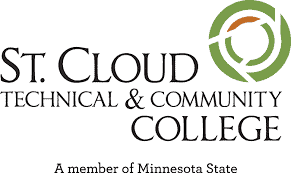
St Cloud Technical & Community College is a public technical school and community college that was established in the late 1940s as a vocation/technical college. SCTCC is a member school of the state’s college and university system. This public community college has been recognized as a National Center of Academic Excellence in the area of Cyber Defense.
St Cloud Technical and Community College is HLC accredited and offers a variety of technical and academic degree programs on-campus and online. These programs are available in education, information technology, business, transportation technology, construction, manufacturing technology, health sciences, and liberal arts.
Score: 80.18
14. Minnesota State Community and Technical College
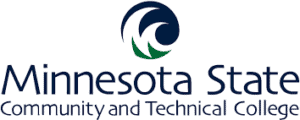
Minnesota State Community & Technical College (MSCTC or M State)was founded in the early 1960s as a technical school. M State, which was created when several local community and technical colleges merged, now operates four campuses and academic facilities.
M State offers approximately 100 career-oriented and academic liberal arts programs – many available online. The largest programs offered by M State include business, nursing, computer, and the radiologic technology program. In addition, M State offers unique programs in the areas of power sports, sign language, electrical line workers, medical lab technicians, and equine science.
Score: 79.21
15. Evergreen Valley College

Evergreen Valley College was established in the mid-1970s to serve the Evergreen district in the eastern portion of San Jose, California. Evergreen Valley College’s campus covers more than 170 acres and is located at the foothills of the Diablo Range. EVC serves more than 7,700 students annually. EVC is also a member school of the state’s community college system.
EVC consists of six academic divisions – business, social sciences, physical education, humanities, arts, nursing/allied health, library/learning resources, language arts, and math, science, and engineering. EVC, in partnership with Tesla, offers the Tesla START program.
Score: 78.72
16. Lakeshore Technical College
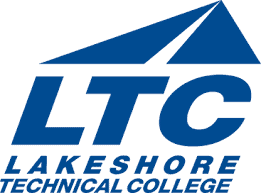
Lakeshore Technical College was established in the late 1960s as a vocational school that also offered adult education. It became a technical institute in the mid-1970s and now operates as a public community college. LTC is one of the member schools within the state’s technical college system and is accredited by the Higher Learning Commission as an institution.
LTC offers a variety of college prep, GED, and ELL programs, as well as non-traditional STEM training programs and academic degrees. LTC offers more than 70 technical and associated degree programs across a number of careers and industries.
Score: 78.42
17. Pasadena City College
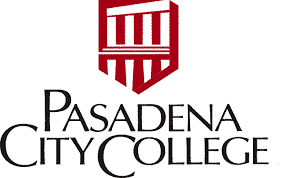
Pasadena City College is a community college that was established in the 1920s as a junior college. The school offers quality education options to those in the greater Pasadena area. Its student body, which is approximately 50% of students of Hispanic descent, exceeds 27,000 students each year.
Pasadena City College offers diplomas, certificates, and academic programs from its 11 academic divisions that include natural sciences, language studies, health sciences, career technicians, business, math, kinesiology/health, performing arts, social sciences, and visual arts/library sciences.
Score: 78.35
18. Western Technical College
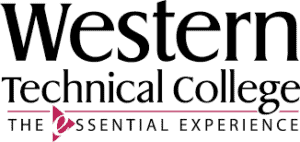
Established in 1912 as a public higher learning institution, Western Technical College now operates as a two-year technical school that is a member of the Wisconsin Technical College System. The school maintains six academic locations in addition to its main La Cross Campus.
Western Technical College offers more than 100 diploma, certificate, and academic degree programs, plus various apprenticeship opportunities and technical training options. Students can select programs from the arts/health, finance, IT, transportation, human services, business, agriculture, law, and education, among others.
Score: 77.93
19. Orange Coast College
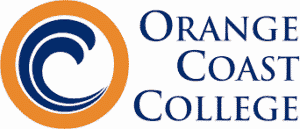
Orange Coast College was established in the late 1940s to serve the residents of Orange County as a junior college. Its campus, which serves approximately 25,000 students each year, was once a federal army air base and has been a training camp and practice facility for the LA Chargers.
OCC is recognized among the state’s top colleges and has the greatest number of students transferring to one of the state’s higher education four-year universities or colleges. The school’s programming is offered by these divisions – business/computing, athletics, counseling, technology, health services, languages, math/sciences, arts, social/behavioral sciences, and library.
Score: 77.53
20. Shoreline Community College
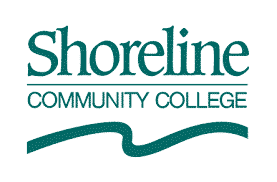
Shoreline Community College began offering classes in the evening in the mid-1960s. Currently, the school’s online programs and 80+ acre campus serve more than 9,000 students each year. SCC offers more than 100 technical, vocational, workforce, and professional training certificates, diplomas, and degrees.
Shoreline Community College is NWCCU accredited as an institution of higher education. SCC offers programs that prepare students for college as well as career training and academic degree programs in the areas of business, performing/visual arts, healthcare, social sciences, industrial technology, languages/communication, and STEM.
Score: 77.32
21. Howard Community College
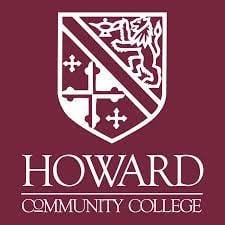
Howard Community College opened as the state’s 14th community college in the late 1960s. HCC’s main campus, which is about ½ hour from Baltimore and less than an hour from the nation’s capital, serves more than 8,000 students each year. The campus is also home to Howard County Community Dance Festival.
Howard Community College offers a variety of academic degrees, certificates, and diploma programs from its academic divisions – social sciences/teacher education, arts/humanities, STEM, business/computer systems, health sciences, workforce development/continuing education, and English/world languages.
Score: 77.05
22. Mt San Antonio College
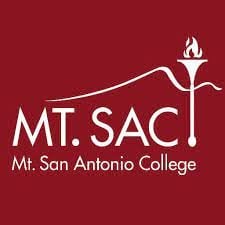
Mt San Antonio College operates as a public community college that was founded in the mid-1940s in Walnut, California, to serve eastern LA County. MTSAC offers more than 400 certificate/diploma and academic degree programs to its student enrollment that exceeds 60,000 credit and noncredit students.
Mt San Antonio College offers a variety of aviation and aircraft maintenance programs – offering intro programs to train to become an FAA air traffic controller. The MTSAC flying team is recognized among the best of any community college team in the Western U.S. The school even offers baccalaureate degree options on its campus.
Score: 76.70
23. Hennepin Technical College
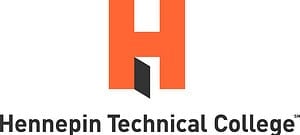
Hennepin Technical College was created in the late 1980s when two local technical schools merged. In the mid-1990s, HTC became a member school of the state’s colleges/universities system. Hennepin’s campuses and its online programming options serve more than 6,000 students each year.
In addition to customizing culinary arts and fire protection programs, HTC is HLC-accredited. The school offers diplomas, certificates, continuing education, and academic degree programs in the areas of business/information technology, transportation, manufacturing, education, building/landscape, health, general education, emergency/public service, and media communications.
Score: 76.64
24. Montgomery College
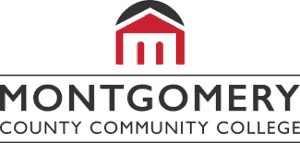
Montgomery College was established in the mid-1940s as a junior college. Currently, MC maintains three academic campuses and an online platform that serves approximately 54,000 credit and noncredit students annually. It also maintains academic facilities in Wheaton and Gaithersburg.
Montgomery College has been recognized to be among the most diverse community colleges in the continental United States. Students will find diplomas, certificates, and academic degree programs in the study areas of health science, business, education/social services, STEM, applied technologies, humanities/arts, and general studies. Plus, the school offers community and academic enrichment programs as well.
Score: 76.43
25. Carroll Community College
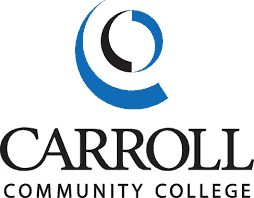
Carroll Community College was established In the mid-1970s as an adjunct of Catonsville Community College. CCC became an independent MSCHE-approved school in the 1990s. The school offers smaller class sizes and significantly reduced tuition rates when compared to public or private four-year schools.
CC offers credit certificates and degree programs in the study areas that include manufacturing, business, computers/technology, ESOL, environmental, fitness, history/culture, STEM, health sciences, performing arts, social science, writing, visual arts, and teaching/education. Job training certificates and online programs are available across multiple industries.
Score: 75.85
26. Capital Community College

Capital Community College was founded as a community college to serve the greater Hartford area in 1967. The school is a member of the Connecticut State Colleges and Universities system and a space grant higher learning institution. More than 3,100 students attend classes on-campus and online each year offered by the NECHE-accredited school.
In addition, Capital Community College is recognized as a Hispanic-servicing institution of higher education. CCC offers a variety of certificate programs, associated degree programs, and more than two dozen CSCU transfer programs. Program options include humanities, nursing, health/public safety, business/technology, social/behavioral sciences, science/math, and media technology.
Score: 75.28
27. Los Angeles Harbor College
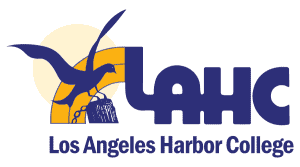
Los Angeles Harbor College was established in the late 1940s to serve students in the harbor area of Los Angeles. The college’s campus and online programs serve more than 10,000 students each year, many of whom transfer to one of the state’s four-year academic programs at a state school.
Los Angeles Harbor College has been ACCJC accredited as well as ACEN accredited for nursing education programs. In addition to career and technical education, LAHC offers programs and degrees in business, health science, child development, English, communications, education, SETEM, humanities, social science, music library, health/wellness, library, and science.
Score: 75.09
28. Santa Fe Community College
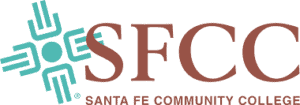
Santa Fe Community College was founded as a public community college in the mid-1980s. The school serves more than 8,000 credit and noncredit students yearly. The campus is more than 350 acres and is located about a dozen miles from the center of Santa Fe and has improved the area ecologically by adding two LEED GOLD-certified buildings.
Santa Fe Community College provides students with more than 100 programs from its six academic divisions – arts/design/media arts, business/education, fitness education, liberal arts, science/health/engineering/math, and trades/technologies/sustainability. In addition, SFCC offers various continuing education and adult education opportunities online and on the school’s Santa Fe campus.
Score: 75.08
29. Johnson County Community College
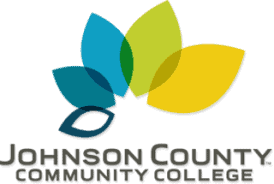
Johnson County Community College was established in the late 1960s to serve the residents of Johnson County, Kansas. JCCC offers students an open admission policy and has more than 100 transfer programs/agreements for regional universities/colleges. The average class size at this community college is 15.
Johnson County Community College offers a diverse array of programs in the fields of arts/design, agriculture, business, English/communications, computers, education, health, foreign language, humanities/social science, hospitality, law, industrial technology, transportation, math/science, public safety, and industrial technology.
Score: 74.93
30. Normandale Community College
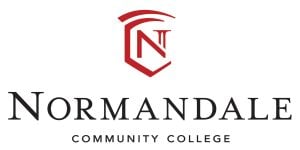
Normandale Community College was established in the late 1960s as a state junior college. The school maintains an academic partnership with the Mankato branch of Minnesota State University. More than 14,500 students attend classes online and on the Bloomington campus. Normandale Community College is. Accredited by the HLC and has program accreditation across a number of academic programs.
NCC offers a variety of trade training. Certificate, Diploma, and academic degrees from the fields of business, individualized studies, arts/humanities/communications, healthcare and wellness, social/behavioral sciences, and teaching and education.
Score: 74.00
31. Southeast Community College
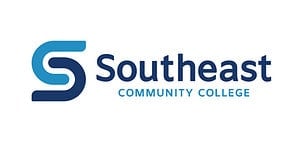
Southeast Community College is a multi-campus community college that serves the southeastern sections of Nebraska. The school’s main campuses in Lincoln, Beatrice, and Milford serve more than 8,000 students. Manu students transfer to the University of Nebraska in Lincoln when finishing their first two years of schooling.
SCC offers various trade, certificate, and academic degree programs across disciplines and industries. These include biotechnology, global studies, computer information technology, cyber security, graphic design, agriculture, GIS technologies, construction, HVAC, criminal justice, law enforcement, business, and automotive technology, to name a few.
Score: 73.92
32. Mesabi Range College
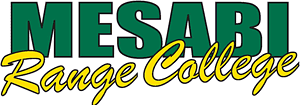
Mesabi Range College was established in the mid-1920s as a technical and community college to serve the center of the state. The college’s campus and online programs serve approximately 1,650 students each year. Student-athletes play in the NJCAA as Norse Athletes.
Students attending Minnesota North College will find a variety of diploma, certificate, trade, and academic degree programs from which to choose. These include Art and design, Business, Natural sciences, Engineering, Culinary Arts, Education, Information Technology, Law Enforcement, Child Development, Network Technician, Liberal Arts, Natural Sciences, Liberal Arts, and more.
Score: 73.70
33. Northwestern Connecticut Community College
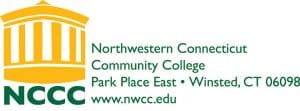
Northwestern Connecticut Community College was founded in the mid-1960s as a public community college by the residents of Winstead, Connecticut which included Ralph Nader’s elder brother. NCCC operates as a member school of the Connecticut State Colleges and University System. In addition, Northwestern Connecticut Community College is a space grant institution of higher learning.
NCC is accredited by the NECHE and offers various programs through its academic divisions. NCCC offers unique opportunities for students to study veterinary technology and interpreter training for deaf studies and is one of the six community colleges in the state to offer a nursing program.
Score: 73.66
34. Aims Community College
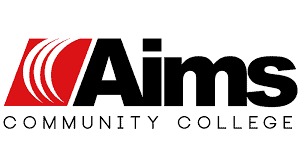
Aims Community College operates as a space-grant institution of higher education with multiple campuses across northern Colorado. Students can attend classes online or in Greely, Fort Lupton, Windsor, and Loveland, CO. The student enrollment for Aims Community College exceeds 7,500 students annually.
In addition to offering high school programming and trade training programs, AIMS Community College offers degrees and certificates in the following areas of study – technical sciences, agriculture/energy, business, STEM, arts/communications, health science, criminal justice/public safety, and transfer degrees.
Score: 73.55
35. Northwest Iowa Community College
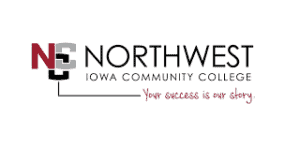
Northwest Iowa Community College was established in the mid-1960s to serve the residents of northwest Iowa. The college’s campus and online platform serve more than 27,000 noncredit and credit students on an annual basis. NICC offers various continuing ed and GED/high school diploma completion options.
Northwest Iowa Community College offers some of the state’s best community college certificate and academic degree programs. NICC offers more than 40 programs in the fields of business, information technology, health, transportation, manufacturing, construction, electrical contracting, and general studies.
Score: 73.01
36. Saddleback College
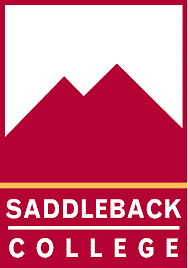
Saddleback College was established in the late 1960s as a junior college to serve the Orange County, California region.SC is recognized to be the oldest and the largest school under the governance of the South //orange County Community College District. The college’s suburban campus and online platform serve more than 25,500 students each year – either online or on the school’s Mission Viejo campus.
Saddleback College has received accreditation from the ACCJC. The college offers more than 100 programs that provide diplomas, certificates, or degrees. The school is also recognized as a veteran’s transition education center, offering extensive resources for those transitioning from military life.
Score: 72.32
37. Cerritos College
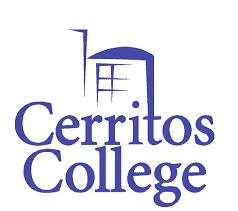
Established in the mid-1950s, Cerritos College is a public community college that is named for a local ranch from the 19th century. Classes were originally held in a local high school until the school built its current site in 1959. Cerritos College is home to more than 22,550 students attending classes yearly. The student-athletes compete as Falcons in the California Community AASCC.
Students attending Cerritos College are offered diploma, certificate, or academic degree programs in the areas of study that include business education, liberal arts, fine arts/communications, humanities/social sciences, health, technology, STEM, and community/adult education.
Score: 72.22
38. Waukesha County Technical College

Waukesha County Technical College is a multi-campus technical college that is a member of the state’s technical college system. Founded in the 1920s, Waukesha County Technical College serves more than 17,550 students from its Pewaukee and Waukesha campuses.
Waukesha County Technical College has received HLC accreditation and offers both continuing education, adult education, and certification and degree program options in the greater Milwaukee area. Students can take classes in architecture/construction, transportation, business/finance, STEM, education, protective services, IT, graphic communications, and liberal arts.
Score: 72.21
39. Southwest Wisconsin Technical College

Southwest Wisconsin Technical College was founded in the late 1960s and offers programs to families and students in 30 school districts across five full and several other partial Wisconsin counties. The first class offered by SWTC, now HLC accredited, was in the field of farm training.
Students have the option of attending classes online or on-campus in the areas of agriculture, health sciences, hospitality/tourism, construction/architecture, arts/communications, human services, automotive, business/management, information technology, education, finance, manufacturing, law/public safety, and coursework that can lead to a transfer to a four-year program.
Score: 72.08
40. Hutchinson Community College

Hutchinson Community College was established in the late-1920s as a junior college. It now operates as a public community college that is governed by the Kansas Board of Regents. This HLC-accredited institution of higher education now serves more than 5,000 students online and on the college’s Hutchinson campus.
Hutchinson Community College offers students more than 65 academic programs that lead to Associate of Science or Associate of Arts degrees. Additionally, HCC offers students more than four dozen technical programs, some online and some delivered as a hybrid program.
Score: 72.01
41. GateWay Community College
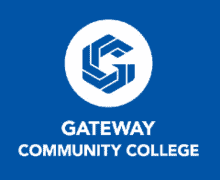
GateWay Community College is a public college that was founded in the late-1960s to serve the Maricopa County area. GCC’s urban campus and online programs serve approximately 12,000 students annually. The campus in Phoenix is also home to the Gateway Early College High School.
GCC offers students a wide variety of program types across industries. Class and program options include applied technology, education, computer/information technology, business and entrepreneurialism, culture/society, and behavioral science/human services.
Score: 71.87
42. Century College
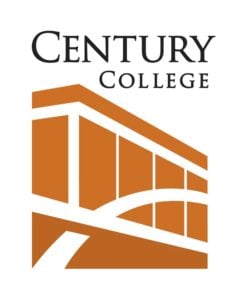
Century College operates as a public community college in eastern Minnesota that serves more than 11,500 students each year. The college was founded in the late 1960s as a junior college, which then merged with a nearby technical school decades later to create Century College.
Century College offers its students various diploma, certificate, and academic degree programs in the study of applied design, social/behavioral sciences, STEM, industry, human services, business, arts/humanities, and health sciences. Many of these programs are available online or delivered as a hybrid program.
Score: 71.72
43. State Technical College of Missouri
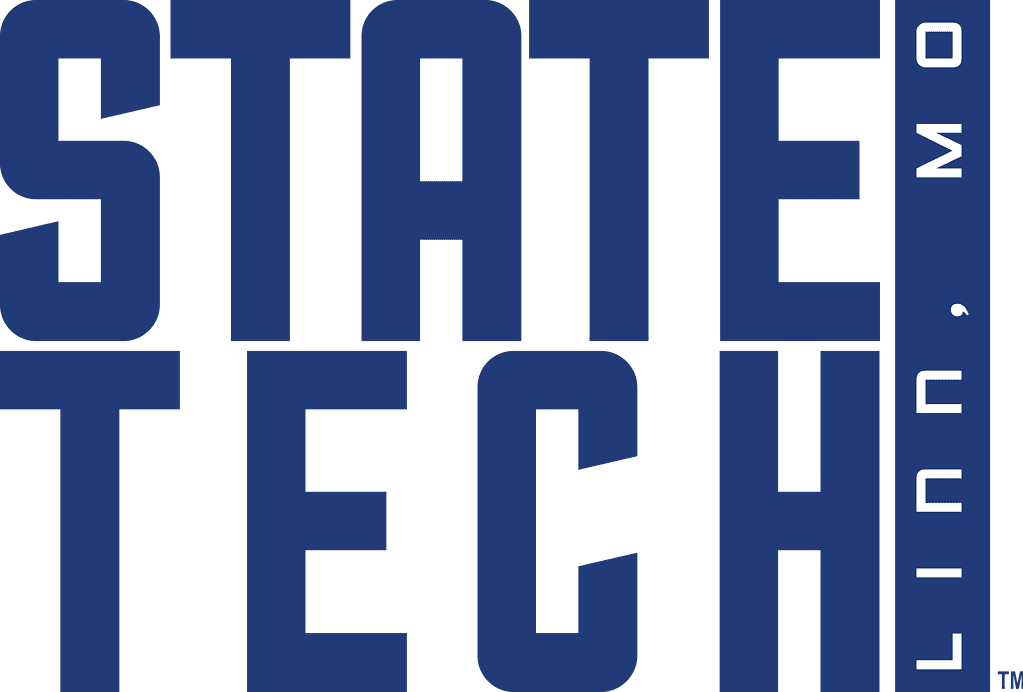
State Technical College of Missouri was founded as a junior college in the early 1960s. The school’s rural campus covers more than 300 acres and serves more than 2,000 students per year. The Chronicle of Higher Education noted that STC was the state’s fastest-growing school.
State Tech offers its students a wide variety of coursework and program types in the area of agriculture, computer technology/electronics, business, diesel technology, construction, industrial technology, health sciences, utilities/line worker, and transportation technology. Additionally, the school offers various workforce training opportunities.
Score: 71.22
44. Palomar College

Palomar College was founded in the mid-1940s to serve the greater San Diego region and now operates as a Hispanic-serving institution. PC, which WASC accredited, maintains several academic centers in and around the northern San Diego County area. The college serves more than 20,000 students on-campus and online each year.
Palomar College offers students more than 200 programs from which to choose in the areas of business, STEM, trade/industry, social/behavioral sciences, health/public services, and humanities/languages. In addition to academic degree programs, OC offers personal enrichment classes, continuing education, and technical training options.
Score: 71.18
45. Casper College

Casper College was founded in the mid-1940s and is recognized as the state’s first junior college. The first classes were offered in a local high school classroom. Casper College serves more than 4,000 students from its Casper campus and online education portal, with its most illustrious alumni – Dick Cheney.
The college offers students a wide variety of programs and degree options in the fields of agriculture, business, automotive, health, hospitality, computers, health and medicine, construction, engineering, social sciences, science/math, education, teaching, and more.
Score: 71.15
46. Northern Virginia Community College

Northern Virginia Community College (NOVA) was established in the mid-1960s as a technical school. The college now operates six campuses and four academic centers across northern Virginia. The school holds the distinction of being the third-largest multiple-campus community college in the nation.
NOVA is considered among the most diverse community colleges, and its student enrollment exceeds 70,000. Students attending NOVA can choose from courses and programs in the fields of manufacturing, arts/communications, education/social sciences, general studies, computer science/IT, health sciences, business/public services, math/engineering, and life/physical sciences.
Score: 70.77
47. Prince George’s Community College

Established in the late-1950s, Prince George’s Community College now serves all of Prince George’s County and surrounding cities, including the nation’s capital. More than 10,100 students attend classes offered by Prince George’s Community College – recognized to be the first institution of education to integrate in Prince George’s County. The school operates a main campus in Largo and additional facilities in Hyattsville and Andrews Air Force Base.
PGCC offers its enrolled students more than 100 fields of study with more than 60 programs available through academic degrees, and the rest available as continuing education, personal enrichment, and workforce development options.
Score: 70.74
48. Lake Area Technical College

Lake Area Technical College was established in the 1960s as a technical school and holds the distinction of being the state’s first technical school. LATC’s rural campus in Watertown and online platform serve more than 2,000 students each year – offering an impressive 1 to 17 – faculty to student ratio.
Lake Area Technical College has been honored with the Aspen Prize for being a Community College of Excellence and has since placed second numerous times. LATC offers students programs and coursework in these study areas – agriculture, financial services, electronic systems, energy, automotive technology, building trades, business, law enforcement, medical lab, aviation, nursing, med/fire rescue, computer systems, cosmetology, surgical tech, machining, dental assisting, diesel technology and more.
Score: 70.70
49. Kansas City Kansas Community College
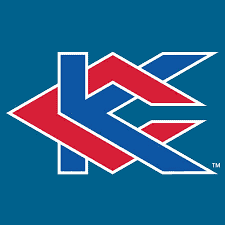
Kansas City Kansas Community College was established in the 1920s as a part of the greater Kansas City education public school system. Kansas City Kansas Community College’s urban campus and online programs serve approximately 4,500 students each year in the northeastern part of the state.
The Higher Learning Commission accredits Kansas City Kansas Community College. Program options from KCKCC include vocational training, ESL, adult education, community education, continuing ed, certificate/diploma programs, and academic degrees. The school’s academic divisions include math/science/business tech, arts/humanities, health professions, technical/career education, and social/behavioral/public services.
Score: 70.46
50. Golden West College
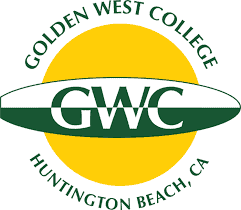
Golden West College is a public community college that was established in the mid-1960s and is considered among the best 2-year schools in California. GWC and two nearby community colleges comprise the Coast Community College District in California. The school’s Huntington Beach campus – in Surf City and online platform serve nearly 14,000 students yearly.
GWC is ACCJC-accredited and offers various academic degrees and trade-oriented training programs. These include business, education, language, social/behavioral science, STEM, health sciences, and visual/performing arts. The school is noted for its quality of education and level of innovation.
Score: 70.45
Why Attend a Community College?
Community colleges first began in the early 1900s, and at the time, were considered little more than advanced high school education. The colleges eventually added vocational training centers. By the 1960s and ’70s, community colleges experienced tremendous growth in educational offerings and student enrollment. Today, more than 12.4 million students are enrolled in community college programs.
Whatever it is that is bringing you to look at community colleges, it is a great idea to ensure you are looking at quality programming. The way to do this is to consider programs that are accredited, as they have undergone a comprehensive vetting process. The community colleges near you might not offer the specializations you are searching for, so you might need to cast a wider net, though chances are, the regionally accredited school in your area could just fit the bill.
Workplace Training
Community Colleges award certificates for professional licensure, vocational and workplace training, continuing education, etc. Students seek credentials to develop or improve skills to enhance their job opportunities. One or two-year certificates are popular in healthcare, computer, information, mechanics, transportation, etc. Businesses and industries will frequently partner with community colleges to provide customized employee training.
Associate Degrees
Associate Degrees are stand-alone degrees or gateways to a bachelor’s degree. Community colleges typically have transfer agreements with four-year schools to accept general education credits, allowing students to enter the college or university as third-year students.
Cost and Benefits
The cost to attend four-year colleges and universities is significant and this is where community colleges shine. Twenty states offer free tuition through special scholarships, grants, or special “promise” programs at community colleges for qualifying residents earning an Associate Degree or technical training. Sometimes, states also offer significantly reduced tuition, as in the case of California, which offers a remarkable $46 per credit hour tuition. Federal Student Aid is available for qualifying students.
Depending on where you live, an Associate Degree can translate to higher pay with an annual median salary of almost $53,000 (indeed.com, March 2021).
How Do I Choose a Community College?
There are many ways to go about choosing a community college. Of course, it is helpful to begin by looking at the best community colleges in the USA. Most people, when attending community colleges, look for schools in their region. In many cases, people turn to community college for an easeful transition into academic life, affordability, accessibility, and programming that is in service of larger academic and career goals. With that being said there are many best community colleges in the United States scattered throughout the country. Because many community colleges have partnerships with four-year colleges and universities scattered throughout the country, it makes it easier to attend a community college that is in a relationship with the college or university that you want to attend. In addition, it is important that you look for an academic program that is fully accredited. Accreditation means the program has been vetted for quality and reliability. Accreditation ensures the programming will be respected and, therefore, easily transferable.
What is a Community College, and What Makes them Different?
You might wonder what is a community college? Well, a community college definition generally implies the school is a public government-funded institution that grants two-year degrees and in many cases certificates. In most cases, the definition of a community college also includes a school that has open enrollment. This means there are no exams required for admission nor is there a selection process. They are often designed to support students to transfer to four-year granting colleges and universities.
The other fact about most community colleges is their affordability and program flexibility. There are often scholarship opportunities that make it a more accessible option, not to mention community college is an inherently cheaper option. In terms of flexibility, you can generally tailor your education according to your needs and goals. This means, in many cases you can pace your programming in a way that works for you, taking one class at a time or a full course load. In addition, community colleges generally offer a variety of non-credit courses enabling community members to have life enrichment opportunities.
How Much Does Community College Cost?
Community college costs are not one size fits all, though they are known to be much less expensive than traditional four-year colleges and universities. The average cost of community college is $5,330 for in-state tuition. This is of course variable and doesn’t account for housing and costs associated with being a student, including books and any student life fees.
What Can I Study at Community College?
A degree at community college is generally an associate’s of arts or sciences that can be transferred to a bachelor’s program. Be sure when selecting the community college that interests you that you look for the types of degrees in community college, ensuring they have something that relates to your interests. In some cases, people attend community colleges to achieve the necessary transferable general education classes.
Related:
Best Online Community Colleges
